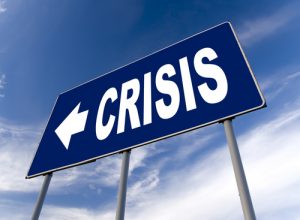Counseling is about the person and the person’s story. Like so many things in life, everything is not usually black and white. There are a variety of shades of color from multiple perspectives in life that can make the story of the client incomplete. For starters, the client has his/her own subjective experience with the events within the story. The unique experience of the client may very well be true from the client’s point of view due to the subjective factors and information available. In addition, the client may possess a variety of blinders to certain truths that may be painful to accept or realize. In other cases, the client may have various personality disorders that completely distort the reality of the events. Whether purposeful or not, these distortions can cause larger issues in the healing, changing and transformational process.

Throughout the blogs on counseling techniques, we have discussed numerous skills a counselor must utilize to help a client find change. This blog will bring many of these skills together in helping forge the client’s initial story into the real and right story (Egan, 2019, p. 270). Egan guides the counselor in addressing the story told, but also how to help push the client forward into telling the real and right story. This helps the client enter into a state of self discovery so that as the story progresses, the client not only heals but also changes and transforms with the reality of the story.
Of course, as a counselor, one cannot make a client change, nor can a counselor sometimes ruthlessly correct or tell a client he/she is wrong. The skills of counseling help the counselor with empathy and patience, gently nudge and guide the client to truth and help the client choose to pursue that truth. This stems first by forming a strong relationship of trust with the client. It involves basic attending skills of empathetic listening, observing and responding to help understand the client and better address the issues. Through empathetic listening and excellent observations, one can begin to see if any discrepancies exist within the story and how to better empathetically confront the client to recognizing the real story and then challenging the client to the right story and course of action, all the while, supplying the client with resources and encouragement to move forward.
The Story
Egan emphasizes that when helping the client tell the story that the counselor needs to make the client feel safe in the encounter. Egan also encourages counselors to understand the styles between different cultures and how different cultures may express stories. Some clients divulge and talk, others are more quiet, while others supply numerous details and others are vague. Some clients may tell the core of the story and leave out secondary issues, while others may approach the story the opposite direction. Some clients may go off topic, while others may stay on topic (Egan, 2019, p. 274-275). This is why it is important to identify what is going on or what the client is feeling at the moment, identify what the client wants and how to get what the client needs. In this regard, counselors can help clients identify key issues and help them discuss the past but in a productive way that helps the past not define them but help them learn (Egan, 2019, p. 181). Egan also points out it is imperative to identify the severity of the initial story. Will this client need basic counseling or require crisis counseling? Clinical counselors may be able to better handle the issue presented or see the need for a specialist. Pastoral counselors dealing with issues beyond basic loss and grief, may identify something more severe and need to refer the client to a clinical counselor.
Sometimes when helping a client tell their story, it can also be useful to utilize Narrative Therapy which helps differentiate the person from the issues. At the end of the blog, there are links to better understand Narrative Therapy and its role in telling the story.
The Real Story
After identifying the key elements of the story, counselors can help clients start to see the real story by exposing with empathy any discrepancies or any blinders a client may possess. Through empathetic confrontation, a counselor can help a client see both sides or different angles to the story that the client may not had seen initially. In this way, the counselor challenges the client in the quality of their perception and participation in the story (Egan, 2019, p. 289). In dealing with the real story, Egan also points out that counselors can help clients understand their own problems and be better equipped to own their own problems and unused opportunities. When a client is gently nudged to the realities of the real story, a counselor can help the client see that the real issue is not impossible to rectify and begin to present problem maintenance structures which help clients identify, explore and act properly with their real issues (Egan, 2019,p. 292). Challenging and encouraging like a coach, can help clients move forward to begin to make the right story in their life.
The Right Story
In telling the right story, the client is pushed to new directions. The client no longer denies the need to change, but has to some extent acknowledged it. In previous blogs, we discuss issues that correlate with change in a client. When the client is ready to change, the client still requires guidance and help. The counselor helps the client choose various issues that will make a true difference in his/her life. When looking at these issues, the counselor helps the client set goals. The goals should be manageable at first and lead to bigger things but only after smaller steps to avoid let down. The counselor can help the client choose from various options and cost benefits, as well as helping the client make proper choices (Egan, 2019, p. 299-301). The counselor, like a coach, helps the client push forward and improve in life. Within the phase of telling the right story, the counselor helps the client with goals but also helps the client see the impact new goals can give to life as well as the needed commitment to those goals to ensure a continued transformation. In previous blogs, we discuss the importance of helping clients face change and develop goals. In essence, goals are developed and strategies are conceived to meet those goals
Stages of Change
Throughout the process, Egan points out that the process involves three stages. First, telling the story so that it transforms into the real and right one. Second, helping the client design and set forth problem managing goals and third and finally, setting into motion those plans with strategies (Egan, 2019). These phases involve various skillsets that the counselor must employ at different phases and stages. It involves the counselor being a listener, advisor, encourager and coach. The counselor applies basic attending skills, in previous blogs, and utilize those attending skills in productive responses and when necessary confrontations. Everything is accomplished with empathy and patience but the skills, built upon trust, allow the counselor to awaken the client to new realities. Following these earlier discussions, the counselor becomes and advisor and coach in helping the client find ways to change and implement new goals and strategies. The counselor uses encouragement skills, coaching skills, and directive skills to help the client discover the power to choose wisely and act in a more healthy fashion. Ultimately it is about the client discovering his/her own inner abilities to not only change but to sustain change.
Conclusion
No client is the same and many will have different innate virtues or vices, talents or deficiencies, strengths or weaknesses. It is up to the counselor to help cultivate what is best in the client and help the client become his/her very best. Through individual skills, the counselor can help within each session, but the counselor must try and fail with multiple different theories and therapies that work best for his/her client. This involves realizing that each case is unique and different people will respond differently to different practices or approaches. A counselor must forever remain creative and flexible in approaches and adhere to the standards of empathy which helps establish trust with clients.

A counselor can utilize a basic structure of identifying the problem, helping the client see where he/she wishes to be and help the client find ways to do it. This involves working the client through the story and helping them see the real and right story moving forward. It involves then goal setting and moving forward with action. It makes the counselor more than a listener and advisor but also a coach.
Please also review AIHCP’s numerous counseling programs for those in the Human Service and Healthcare fields. While clinical counselors have more ability to help clients deeper with issues, pastoral counselors in Human Service can also help. This is why AIHCP offers these certifications to both clinical and non clinical Human Service professionals. The programs in mental health include a Grief Counseling Certification, as well as a Christian Counseling Certification, Crisis Counseling Certification, Stress Management Consulting Certification and Anger Management Specialist Certification. The programs themselves are online and independent study and open to qualified professionals seeking a four year certification. Please review AIHCP’s numerous certification programs.
Reference
Egan, G. and Reese, R. (2019). “The Skilled Helper: A Problem Management and Opportunity-Development Approach to Helping” (11th Ed.) Cengage.
Additional Resources
Ackerman, C. (2017). “19 Best Narrative Therapy Techniques & Worksheets”. Positive Psychology. Access here
Bates, D. (2022). “Storytelling in Counseling Is Often the Key to Successful Outcomes”. Psychotherapy.net. Access here
Guy Evans, O. (2023). “Narrative Therapy: Definition, Techniques & Interventions”. Simply Psychology. Access here
“Narrative Therapy”. Psychology Today. Access here





